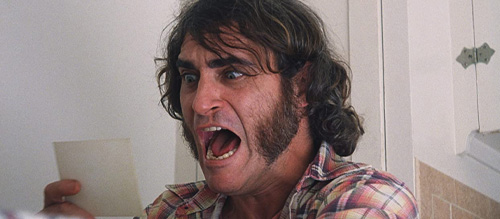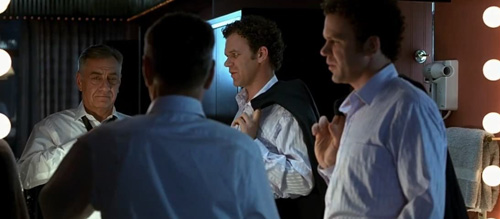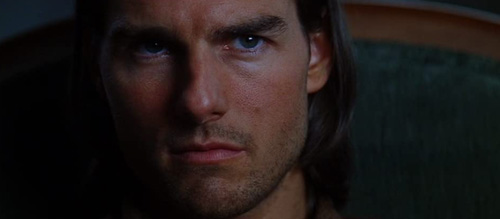Paul Thomas Anderson Films Ranked
Paul Thomas Anderson is often considered one of the best American directors working today: whenever he releases a new film, expect to hear its name frequently show up at awards ceremonies. He attracts top tier actors, cinematographers and composers that help to propel his layered and intricately designed films to critical and commercial success. To date, he is the only person to win the Best Director prize at the three major international film festivals: Cannes in 2002, Berlin in 2008 and Venice in 2012.
Paul Thomas Anderson, often referred to as “PTA”, is a director who is in love with cinema. While he has signature techniques, nobody can be sure what to expect in any one of his films. The sheer variety of his work suggests a filmmaker aware of the fluidity of the medium, someone who refuses to be confined to one set of rules. His films reward rewatches, as most are densely packed with layered themes and ideas likely to be missed on a first watch. This is part of his appeal as an artist: with each new release, audiences are getting an experience as opposed to a singular 2-hour story.
In this edition of Ranked, we at The Film Magazine are assessing Paul Thomas Anderson’s artistic output from his 1996 debut to his latest release. Based on critical reception, audience connection and the level of uniqueness that set his nine feature films apart, these are the Paul Thomas Anderson Films Ranked.
Follow @thefilmagazine on Twitter.
9. Inherent Vice (2014)

Inherent Vice may be at the bottom of the list, but it isn’t without its many merits.
Paul Thomas Anderson paints an extraordinary portrait of the United States of America on the cusp of a new decade. The authentic set design goes a long way in selling a believable time period as Anderson sells us a world that seems tired from the turmoil of the 60s.
The plot is arguably the least important element of the film (Joaquin Phoenix is Doc, a stoner private investigator who is tasked with a missing persons case) as Anderson is more focused on conveying a laidback, hazy mood than telling a basic narrative. While this works for some people, it makes Inherent Vice one of Paul Thomas Anderson’s most divisive films. Anyone looking for the grandiose tension of this director’s other work is likely to be disappointed.
The star-studded supporting cast results in many memorable characters and the film has plenty of laugh out loud moments; Anderson is certainly successful in capturing the spirit of that decade, but his best films grip you and have a staying power that this film does not.
8. Hard Eight (1996)

Paul Thomas Anderson’s first feature shows so much promise and is easily the most overlooked film of his career.
While Hard Eight doesn’t have the complexity of his later work, nor does it conduct the same deep dive into characters that some of his most recognisable work is known for, it is successful because of its simplicity. In a filmography where the average run time is well over two hours, it’s refreshing to have a film tell a compelling small-scale story in just 102 minutes.
Sydney (Philip Baker Hall) is a charismatic gambler who stumbles upon the much less successful John (John C. Reilly) at a diner. Sydney takes pity on John and agrees to mentor him. 2 years later, the pair are professional gamblers and have formed something akin to a father/son relationship. The second half of the film is grittier and more filled with tension, notably contrasting the tone of the first.
Based on his earlier short film, Cigarettes and Coffee, Hard Eight is as slick like as the casinos it’s set in. The skilful camera work and layered plot give the film an unexpected but welcome maturity for a debut piece.
John C. Reilly, known for his comedic roles in films like Step Brothers, delivers a strong dramatic performance that is quietly underrated. His bond with Philip Baker Hall is believable and undoubtedly the strongest aspect of a less-Andersonian film than the rest of this director’s filmography, but an enjoyable one nonetheless.
Recommended for you: David Fincher Movies Ranked
7. Magnolia (1999)

Building on the momentum of his first two features, Magnolia is a film with a 3-hour runtime that never drags as Anderson crafts a consistently engaging story that maintains energy even through its heavier moments.
Magnolia tells an interconnected story of multiple characters in search of something – whether it’s love, forgiveness, or a grander purpose. Like its predecessor Boogie Nights (1997), Magnolia illustrates Anderson’s strength as an ensemble director. The characters are frighteningly real at times, as if they belong in a documentary as opposed to fiction; their sadness is visceral and raw, leading to points of sombre reflection which complement the overall tone.
Tom Cruise is the standout. In a year where Cruise had already starred in Stanley Kubrick’s Eyes Wide Shut, Magnolia granted us another shocking departure from the actor’s typical action-orientated roles, this time as the motivational speaker Frank. At first he is repulsive, a culmination of the worst parts of masculinity, but as the film progresses and more layers are peeled back, he shows a surprising level of vulnerability. It’s Cruise’s performance that balances these two sides and results in a character that is equal parts toxic and irresistible.
Paul Thomas Anderson’s melancholic foray into the human condition was an early career triumph, filled with realistically flawed characters, moments of pure anxiety, and one of the most unexpected endings in film history.

